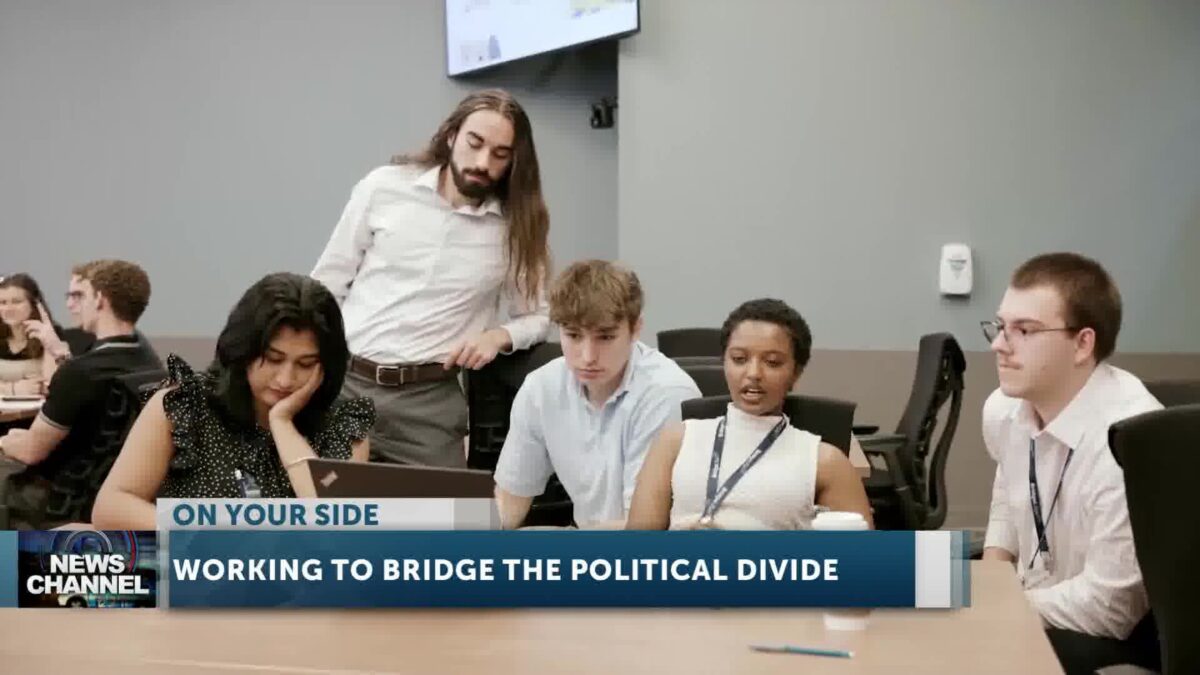College students turn to BridgeUSA for dialogue in an era of political division

Ryder Christ
SANTA BARBARA, Calif. (KEYT) — The assassination of conservative activist Charlie Kirk has highlighted the nation’s deep political divide and renewed attention on efforts to reduce polarization.
The House recently passed a resolution honoring Kirk and condemning political violence. The measure passed 310-58, with all Republicans and 95 Democrats voting yes. Another 58 Democrats voted no and 38 voted present. Kirk, 31, co-founded Turning Point USA and was killed while engaging with students at Utah Valley University. Police charged 22-year-old Tyler James Robinson of Washington, Utah, with aggravated murder, saying the attack was planned in advance.
The incident comes as polls show most Americans believe the country is in a political crisis. A Pew Research study found fewer than half of Americans say there is common ground between Republicans and Democrats in Washington, down 12 points since 2023. A Quinnipiac University poll found 79 percent of voters believe the U.S. is in crisis, 58 percent say lowering the political temperature is not possible, and more than half expect political violence to get worse in the years ahead.
Amid the tension, students in groups like BridgeUSA are working to create space for dialogue across the political spectrum. The nonprofit has nearly 100 chapters on college campuses nationwide. Cal Poly San Luis Obispo once had a chapter, but it disbanded earlier this year amid student turnover.
Students at a BridgeUSA event on Cal Poly’s campus in May 2024 told the Wall Street Journal that they had noticed politics had become increasingly polarized and that they found it a “relief” to talk about politics without feeling like they would be “ostracized” by a group.
At UCLA, BridgeUSA president Nicholas Chew said the goal is not to change minds but to normalize disagreement. “The point of our discussions is not to change people’s perspectives, but to give them an opportunity to voice their own perspective,” Chew said. “Our goal is just to bring people together to practice these discussions and this healthy dialog.”
Chew contrasted BridgeUSA’s mission with advocacy groups like Turning Point USA. “The goal of BridgeUSA is to bring people of a variety across the political spectrum to talk about those topics that might be harder to discuss,” he said.
That contrast played out at Cal Poly when Kirk visited Cal Poly on March 7, 2024, for a “Prove Me Wrong” event hosted by the TPUSA chapter. The student newspaper, Mustang News, reported the event drew a large crowd of both supporters and protesters on Dexter Lawn, where Kirk spoke and took questions from students. Some students welcomed the chance to engage with Kirk’s conservative viewpoints, while others organized counter-protests, underscoring the polarized atmosphere.
Chew said social media has made division worse. “We grew up with internet, social media, and we find ourselves in these little speech bubbles. The things that gain the most engagement are those that are the most controversial. At Bridge, we try to show that disagreement is completely normal.”
That point was echoed by former State Senator Hannah-Beth Jackson, who noted that young people have been shaped by an online culture that rewards outrage. “They value clicks. That’s how they make money. The way you make money on the internet is by having extreme positions,” Jackson said. Former Santa Barbara City Councilman Dale Francisco agreed, saying BridgeUSA is trying to restore some of the skills of fair debate that earlier generations learned in school.
Political leaders from both sides of the aisle said groups like BridgeUSA can play an important role. Jackson added, “We really need to sit down and try to find those things that unite us rather than the things that divide us. It has to be possible in a democracy for it to survive and flourish.” Francisco praised the group’s peer-to-peer approach, “It sounds to me as if BridgeUSA is trying to recreate some of that learning, which I think is great.”
Even as polls show many Americans see little chance of bridging the divide, Chew said the effort remains vital. “Even though you still might have the same disagreements, it really helps personalize that experience,” he said. “It really brings the humanity out of it.”